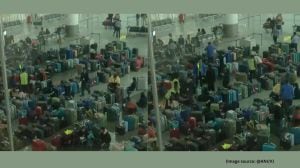Plan panel experts suggest health entitlement card for all
The high-level expert group on universal health coverage,set up by the Planning Commission,has suggested issuing all citizens a National Health Entitlement Card
The high-level expert group on universal health coverage,set up by the Planning Commission,has suggested issuing all citizens a National Health Entitlement Card to provide essential and standard health services under a proposed National Health Package that envisage five different levels spread across primary,secondary and tertiary levels of health care to every citizen.
The panel,headed by K Srinath Reddy,has suggested subsuming government-funded insurance schemes Rashtriya Swasthya Bima Yojana (RSBY) and Rajiv Aarogyasri Health Insurance Scheme under it and broaden the coverage to provide cashless health care to all sections of the society by the end of 13th five-year plan.
The panel constituted in October last year has asked the government to set up 187 new medical colleges,58 nursing colleges,382 nursing schools and 232 ANM schools in the next 10 years to meet the required number of health professionals to impart health services under the proposed universal health care (UHC) system. For this purpose,the panel has asked the government to increase the real per capita public health investment by over 400 per cent from Rs 670 in 2010-11 to Rs 3,432 in 2021-22. This would amount to raising the public expenditure (including Central and state governments) from the current level of 1.2 per cent of the GDP to 3 per cent of GDP by 2022.
However,the projections by the panel indicate that out of pocket private expenditures on health would decline only by less than 7 per cent despite over 400 per cent jump in the public expenditure during this period,assuming that total spending (private and public) on health remains at current level of 4.5 per cent of the GDP even at 2022.
Reddys panel has suggested general taxation as the principal source of finance the proposed five-fold jump in public expenditure on health and recommended removing user fees of all forms to the health services. It has also recommended the government to enhance public expenditure on public procurement of medicines by five times (to 0.5 per cent of the GDP) to provide free essential medicines and undertake procurement of drugs through Drug Supply Logistics Corporations at state and national levels.
The panel has suggested the government should create an Indian Public Health Service cadre with an estimated strength of about ,60,000 lakh personnel to manage this ambitious plan at all three levels of health care.
- 01
- 02
- 03
- 04
- 05































